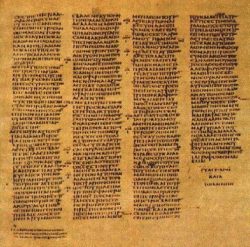The ecumenical translation of the Bible into French
In 1975 an ecumenical translation of the Bible into French, called TOB, was published. It was the result of collaborative work between biblical scholars of the French biblical School in Jerusalem and of the biblical Alliance, as well as of Catholic, Protestant and Orthodox theologians. Since then it was revised and became an important, but not exclusive, reference in Catholic and Protestant liturgies, and since 2010 the Orthodox liturgy as well.
A consequence of Vatican II council
At the time of the Vatican II council the project of an ecumenical translation of the Bible emerged in France. Advances in exegesis, the fact that the faithful of the Catholic Church were encouraged to read the Bible, and that the Dominicans wished to revise the translation they had submitted in 1957, called the Jerusalem Bible, were as some of the many positive elements which rapidly gave it shape.
In 1961 about forty biblical scholars and theologians started working. Among them on the Catholic side were Father Refoulé, Father Dubarle, Father Geoltrain, Annie Jaubert, and on the Protestant side Pierre Bonnard, Pierre Prigent, Marc-Alain Chevallier. Pastor Jacques Maury chaired the organising committee, while François Refoulé (1922-1998) and Pastor Georges Casalis (1917-1987) were the General Secretaries. The translations were revised and reworked by theologians and notes were written down. Some provided reasons for their choices, a word rather than another. Others added historical references and recalled former controversies.
Beginning with the translation of Paul’s Epistle to the Romans
The work began with the New Testament. The first text they worked on was Paul’s Epistle to the Romans. It was something of test. Since Saint Augustus the Epistle to the Romans was subjected to various interpretations. At the time of the Reformation it fiercely opposed Protestants to Catholics.
In 1967 the translation was published jointly by Le Cerf and Les Bergers et les Mages.
The success of this first collaboration enabled to validate the whole project. The translation of the whole New Testament was completed in 1972. The Editions du Cerf – on the Catholic side – published the unabridged notes of the translators, whereas Les Bergers et les Mages – on the Protestant side – only kept some of them, called imperative notes. The new translation was rapidly adopted by many parishes. But it was not exclusive: the synodal version, called Ostervald, and that of Louis Segond (1880) among Protestants, as well as the Jerusalem Bible or the translation of the of canon Crampon among Catholics, were still references. Since then other translations have been initiated.
Then the ecumenical translation of the Old Testament
The translation of the Old Testament was completed and published in 1975. The working text was the Masserotic version of the canon of the Hebrew Bible, established and vocalised in the 7th century AD. It was accepted by the Catholics and the Protestants.
As for the Orthodox, they were cautious about the choice. Indeed they have always opted for the Septant edition, established and translated into Greek by the Alexandria School. Thus in their liturgy they have used so-called deuterocanonical texts, because they did not belong to the canon of the Hebrew Bible, not being written in Hebrew. In 2004 a new publication comprised a revision of the notes. In 2010 deuterocanonical books used by the Orthodox were added.
As no translation can be considered ultimate, other revisions are likely.
So far there is no other ecumenical translation of the Bible but the French one.
Bibliography
- Sites
- Documents
- Books
Associated tours
-
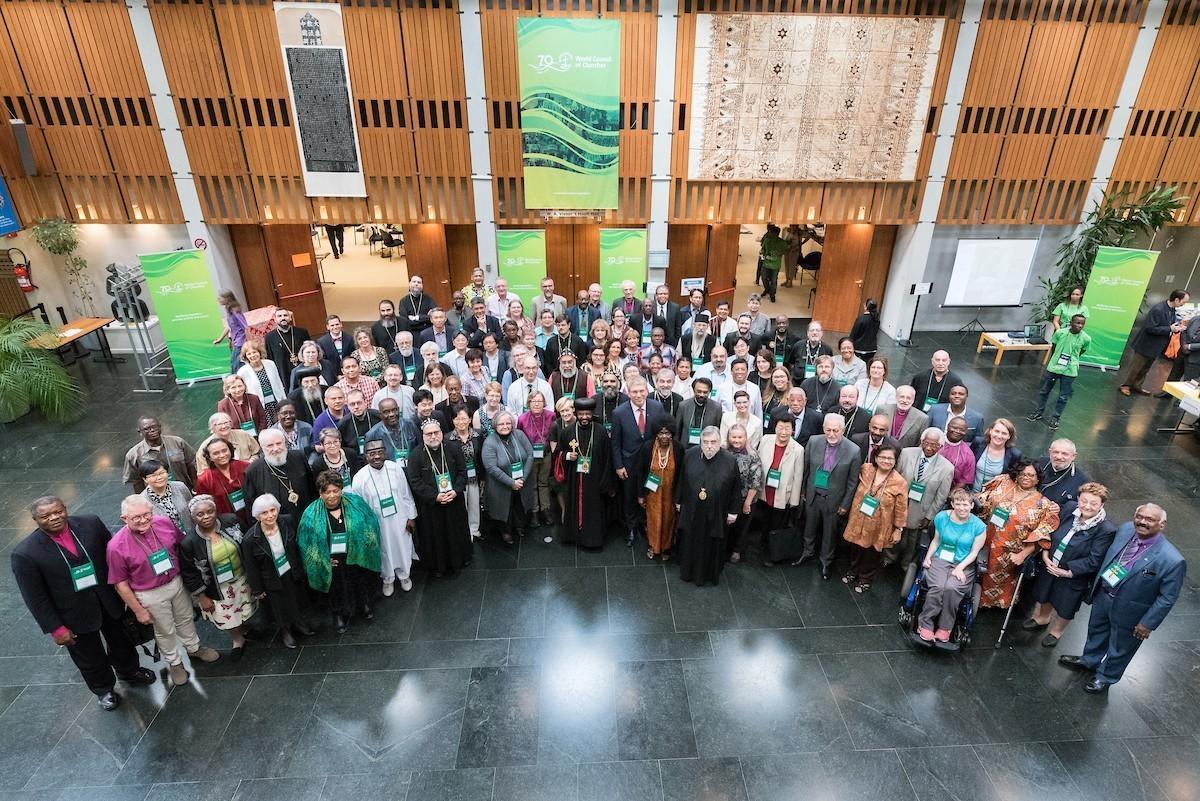
Ecumenical progress
Ecumenism manifests itself at various levels and in different ways (meetings, agreements, joint actions) and involves partners of various Christian faiths, often on a bilateral basis. The present notice recalls...
Associated notes
-
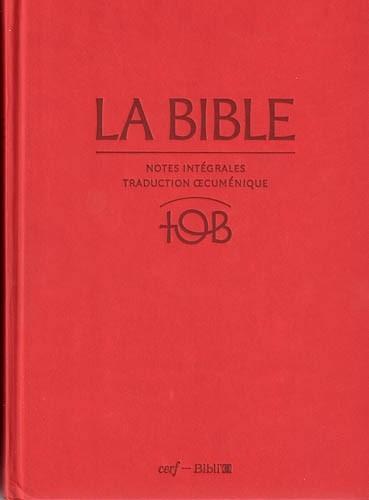
What is the Bible ?
The Bible is the most widely read and most extensively published book in the world. It is a literary masterpiece : many scholars have written Biblical commentaries and over the centuries... -

Humanism and translations of the Bible into the vernacular
The 16th century was a turning point in the history of the Bible ; it was widely distributed due to the invention of printing. Humanism advocated a return to the original... -
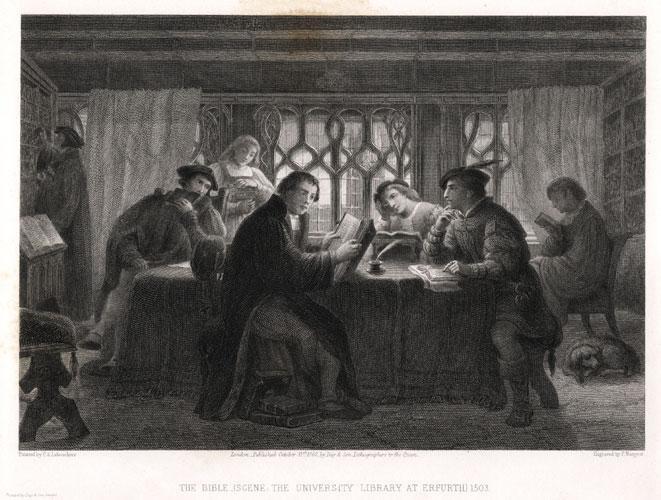
Martin Luther, translator of the Bible
As early as 1517 Martin Luther started translating the Psalms into German. In 1521, when he was imprisoned in Wartburg, he set about translating the New Testament. This great undertaking... -
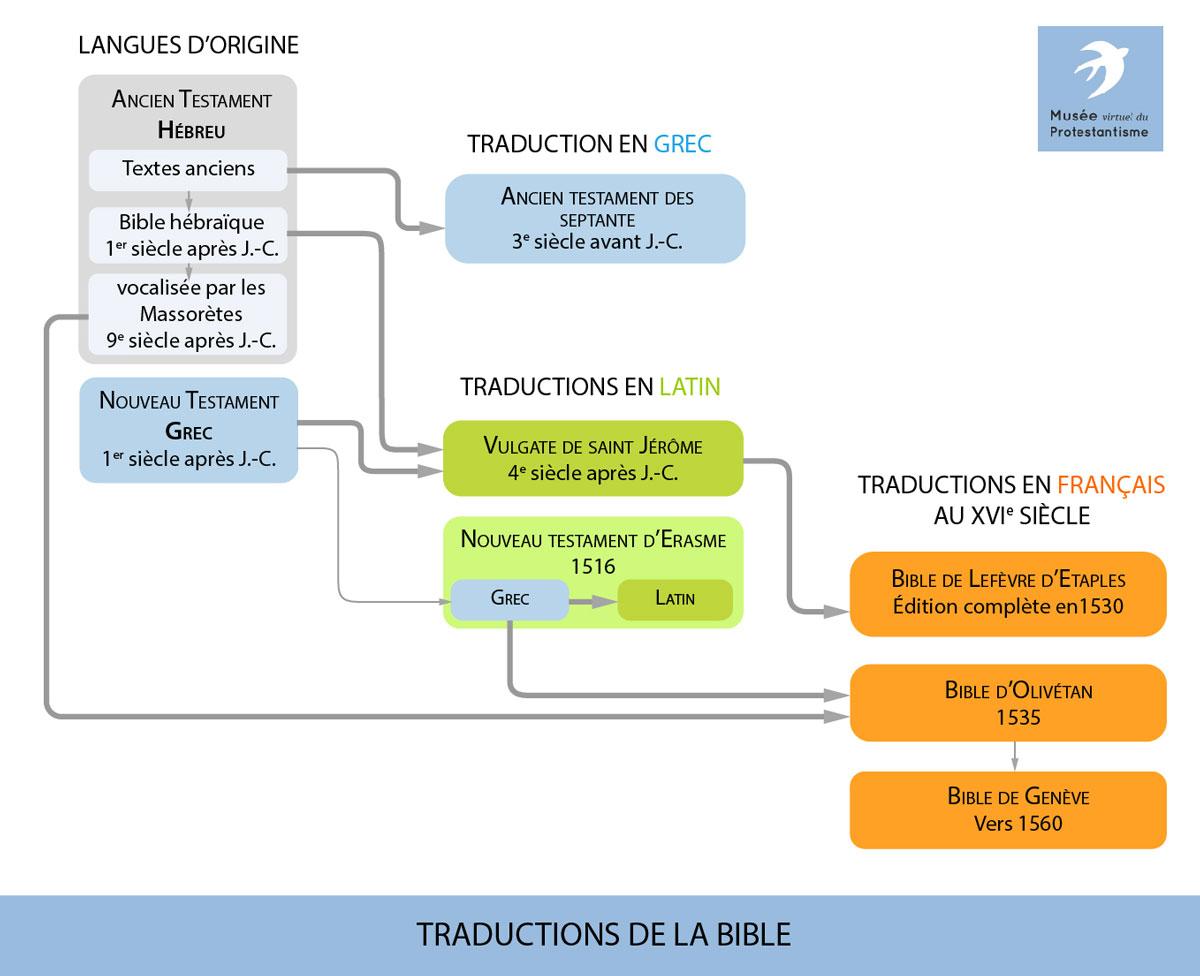
16th century translations of the Bible into Latin and French
During the 16th century, numerous translations of the Bible were made into Latin and French.





